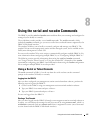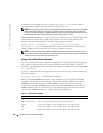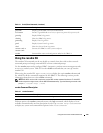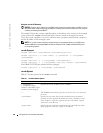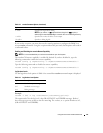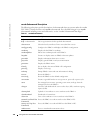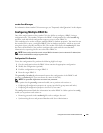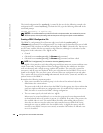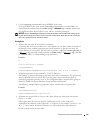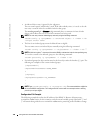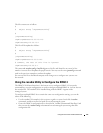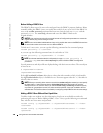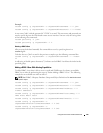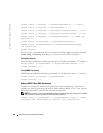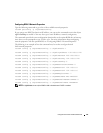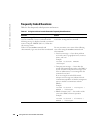
Using the serial and racadm Commands 135
• Use the
racresetcfg
subcommand to keep all DRAC 4s the same.
To keep all DRAC 4s the same, use the
racresetcfg
subcommand to reset the DRAC 4 to
original defaults, and then run the
racadm config
-
f
<filename>
.cfg
command. Ensure that
the
.cfg
file has all the desired objects, users, indexes, and other parameters.
NOTICE: Use the racresetcfg subcommand to reset the database and the DRAC 4 NIC settings to the
original default settings and remove all users and user configurations. While the root user is available,
other users’ settings are also reset to the default.
Parsing Rules
• All lines that start with '#' are treated as comments.
A comment line
must
start in column one. A '#' character in any other column is treated as a
# character. (Some modem parameters may have # characters as part of their string. An
escape character is not required. You may want to generate a
.cfg
from a
racadm getconfig -f
<
filename
>.cfg
command, and then perform a
racadm config -f <
filename
>.cfg
command
to a different DRAC 4, without adding escape characters).
Example
:
#
# This would be a comment
[cfgUserAdmin]
cfgUserAdminPageModemInitString=<Modem init # not a comment>
• All group entries must be surrounded by "
["
and "
]"
characters.
The starting "
["
character denoting a group name
must
start in column one. This group name
must
be specified before any of the objects in that group. Objects that do not have an
associated group name generate an error. The configuration data is organized into groups as
defined in "DRAC 4 Property Database Group and Object Definitions."
The following example displays a group name, object, and the object’s property value.
Example
:
[cfgLanNetworking]
cfgNicIpAddress=143.154.133.121
• All parameters are specified as "object=value" pairs without any white space between the
object, =, or value.
White spaces after the value are ignored. A white space inside a value string is left
unmodified. Any character to the right of the '=' is taken as is (for example, a second '=', or a
'#', '[', ']', and so forth). All of these characters are valid modem chat script characters.
See the example in the previous bullet.



